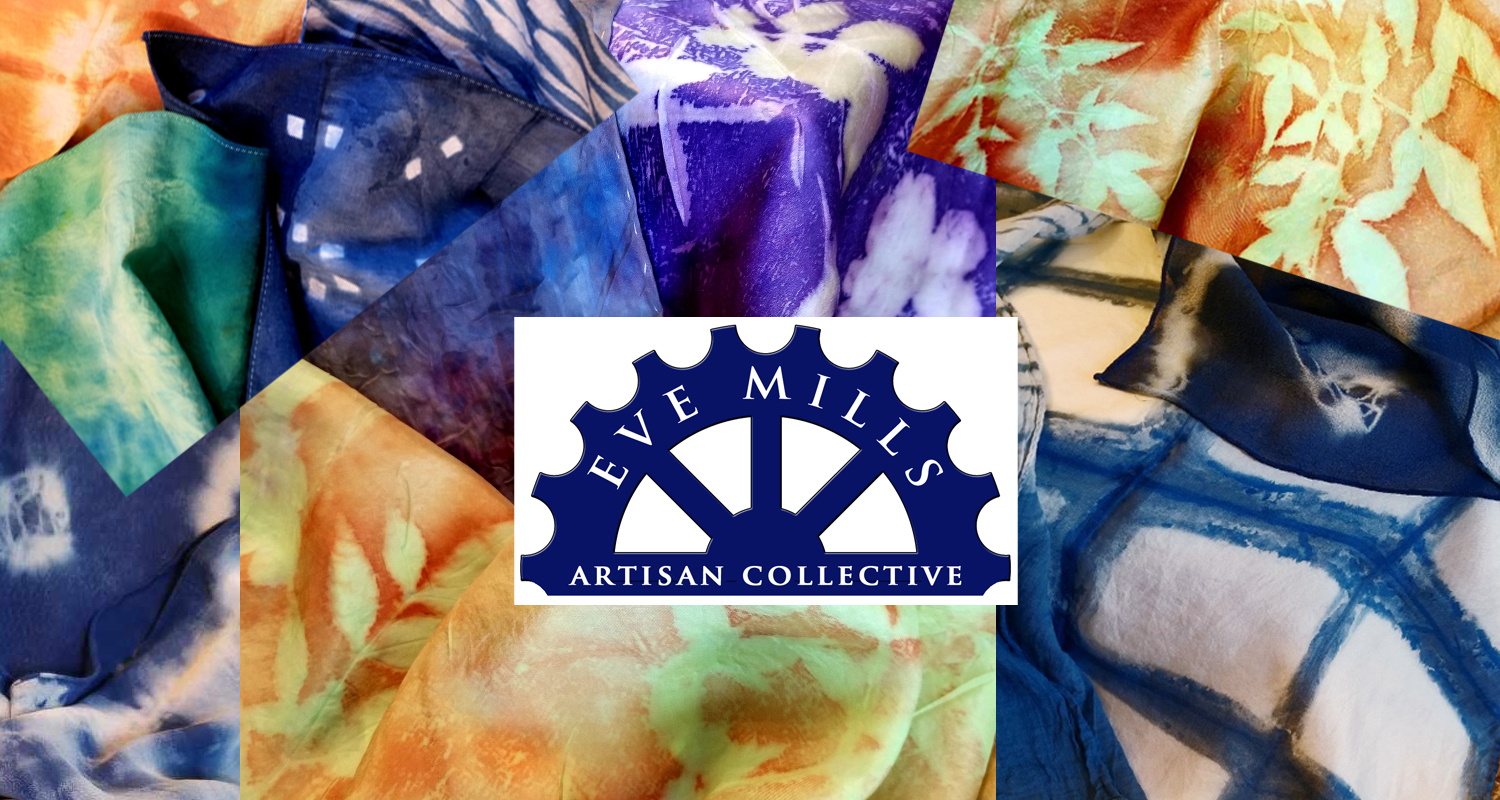

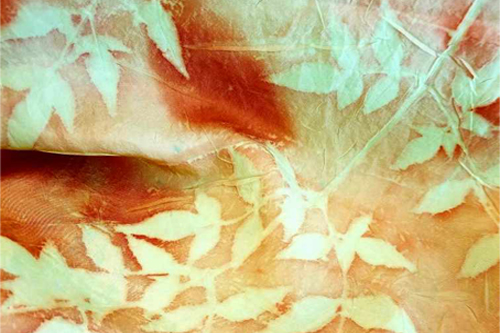
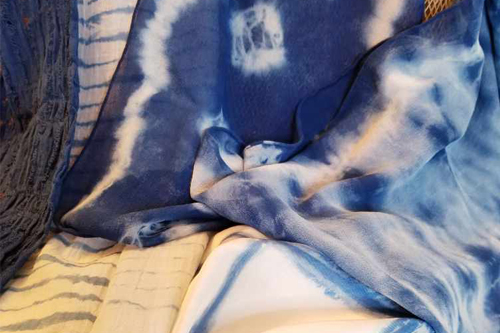
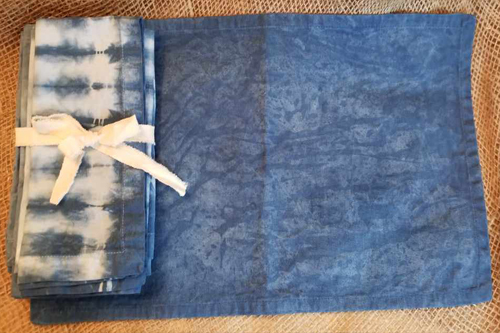
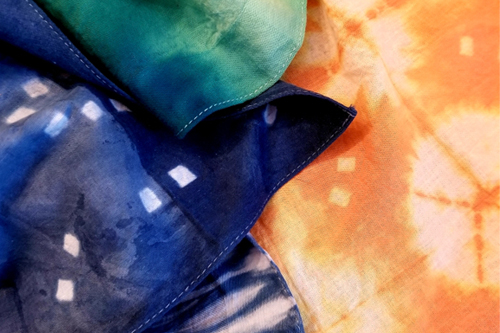
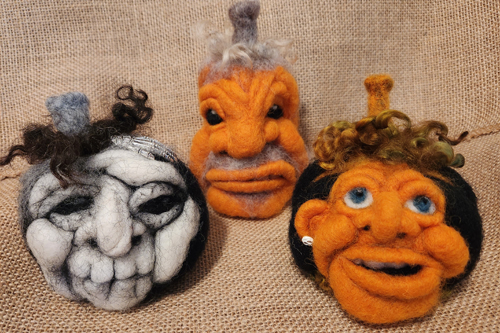
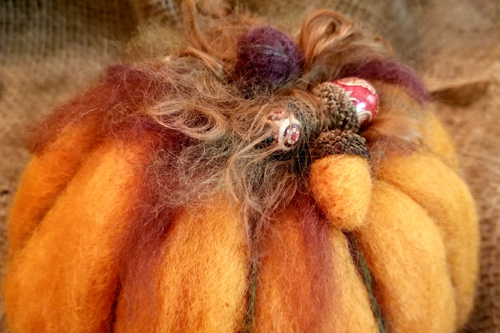
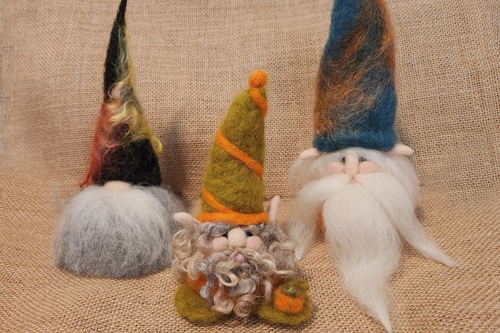
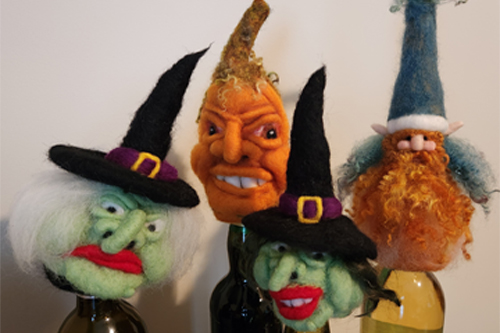
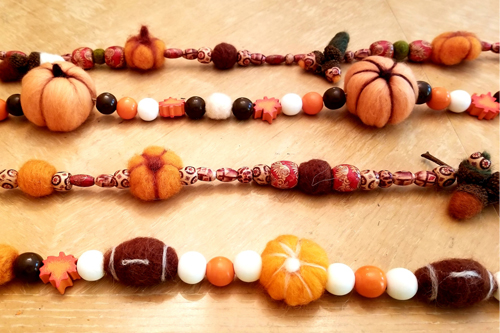
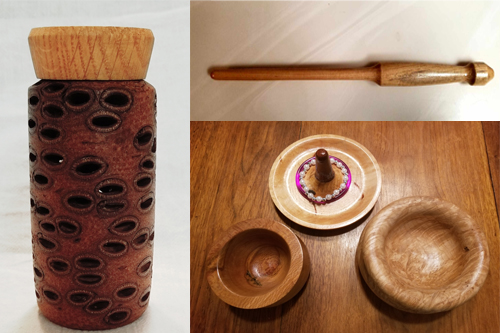
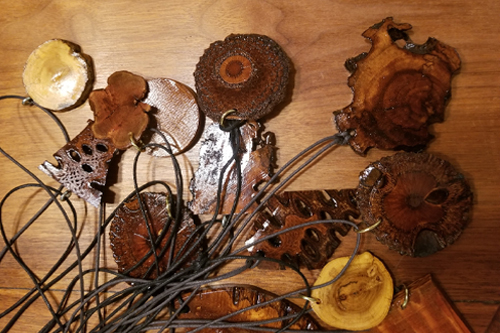
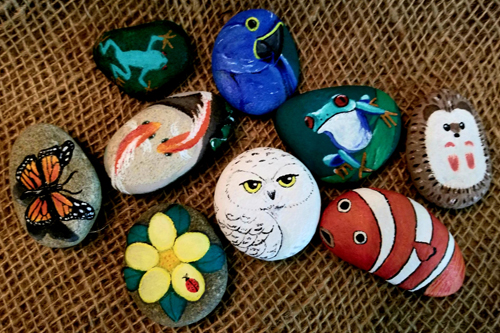
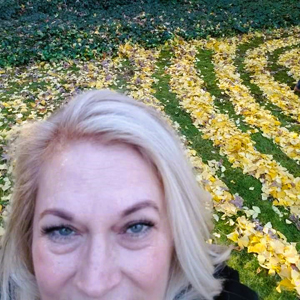
Eco-printing, Indigo and Natural Dyed Fabrics, Needle-felted Wool Items
Raised by a botany professor who was an avid naturalist, Kathy has an appreciation of all things nature-based. Having dabbled in hand-built clay ceramics and mosaics, she has fallen in love with the eco-printing process, dyeing with indigo and other natural dyes and uses silk, wool and cotton fibers in her work.
Recent learning experiences include fresh indigo harvesting and dying with Riley Douglas at Museum of Infinite Outcomes (Knoxville, TN) and with Caroline Harper at CHI Designs Studio (Charleston, SC) and eco-printing, wool felting and natural dyeing with Holly Williams at Lasso the Moon Alpaca Farm (Blairsville, GA).
Kathy is co-founder, with Cindy Cox, of the Eve Mills Artisan Collective in East Tennessee
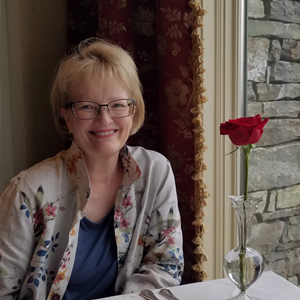
Eco-printing, Indigo and Natural Dyed Fabrics, Needle-felted Wool Items
Cindy is an East Tennessee native with an MS degree in horticulture from UT – GO VOLS! After earning another degree in web design a few years ago, she has lived by the motto “you’re never too old to learn!” Since then, she has pursued arts and crafts interests, recently becoming engaged in natural dyeing, fiber art and the science of indigo growing, harvesting, processing and dyeing.
Her formal training mirrors Kathy’s, but she is a breakout star in creating felted wool pumpkin heads, gnomes and bottle toppers, which have become conversation pieces for their unique expressiveness. In addition to Lasso the Moon Alpaca Farm, she credits Lincolnshire Fenn Crafts and Sarafina Fiber Arts for their educational videos and inspiration.
Cindy is co-founder of Eve Mills Artisan Collective.
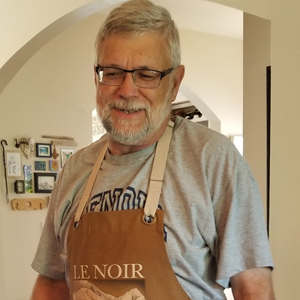
Woodworking: Bowls, Vases, Wine Stoppers, Pens, Wands, Dibbles and more
A regular participant in the World’s Greatest Studio Tour in Bowling Green, KY, David is self-taught for the most part, though in his formative years he had the benefit of learning from both his dad, Bill LeNoir, and his grandfather, Claude Grimm, both of whom were woodcarvers and woodturners. He is also a member of the Kentucky Forge Council and has had studio sessions with Atlanta artist, George Long, at his private forge.
David's pieces are in private collections all over the Southeast, and his wizard wands are highly sought after by Harry Potter fans and collectors.
Feel free to text David at 270-996-8066 for more information.

Painted Rocks, Pen and Ink Drawings, Acrylics
Aaron will graduate this Fall from UT Knoxville, with a major in business analytics and a minor in graphic design. He has been accepted into the graduate program at UT Knoxville for business analytics begining June 2024.
Aaron began drawing at an early age, and while a student at Kings Academy, his art was displayed at Arrowmont School of Arts and Crafts in Gatlinburg and other Blount County, TN venues.
In his free time, Aaron is a master Lego builder and enjoys gaming.
We're a group of artisans creating eco-print & indigo dyed textiles, felted wool decor, turned wood items, painted rocks and more.
Follow us to find out what we're up to and where we'll be displaying and selling our creations. . .
Eve Mills was a small community on Fork Creek (Tuloghaler) near Loudon, Tennessee, now largely lost to time. People who were a part of the tiny farm community are long gone, and current nearby residents have only memories of visiting some of the small businesses there. Only the water-powered grist mill still stands as an obvious reminder, though it has been shuttered for over forty years. On Google Maps, Eve Mill Road joins Loudon Road where the mill sits on Fork Creek, and there is a tag for the Cumberland Stand Church, which burned many years ago.
A casual observer might suppose the community’s name was derived from the mill. In fact, the erroneous spelling, “Eve Mill,” appears regularly on maps and in other references, but the community name of Eve Mills was not a reference to a mill at all.
The community got its name from a local legend about a Cherokee maiden, Evaleeka, who was in love with a white man named John Mills. The two were betrothed, but Mills was murdered by a jealous tribesman on the day of their intended wedding. The heartbroken Evaleeka threw herself off a bluff into the storm-swollen Fork Creek and drowned. The area became known as Eve Mills in both remembrance and reference to where the tragedy took place.
The grist mill at the heart of the community was established in the early 1800’s by the Kelso family. Over time, its spacious plank floor made the mill an ideal social center for the community. Dances and even roller skating parties took place there, and it served as a polling site for elections. Nearby there was also a saw mill, a blacksmith shop, a general store, a church, the Tuloghaler school, and even a post office. Today the general store and mill structures remain and are listed on the National Register of Historic Places as the William J. Fowler Mill and House, known locally as Fowler's Mill. Few other traces are left: only the old Tuloghaler building foundations and Evaleeka’s spirit.
We chose the name to honor the history of the small community of early Tennessee pioneers and ancestor dreamers, as well as to salute their spirit of cooperation and community support, which the Eve Mills Artisan Collective reflects.